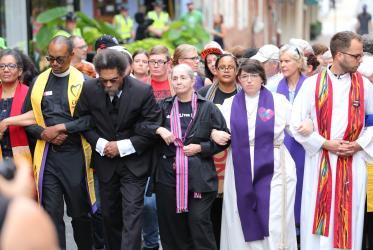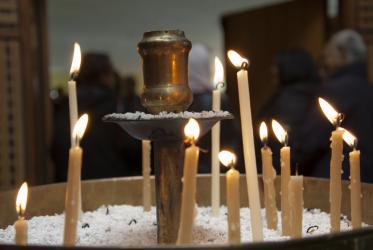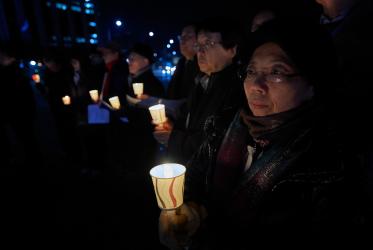Displaying 1 - 19 of 19
CCIA meets in Brisbane with focus on Pacific regional priorities
19 February 2020
WCC condemns attack at Hanukkah celebration in New York City
29 December 2019
A passionate Korean feminist and ecumenist
21 August 2019
WCC condemns terrorism attacks
02 November 2017
Religious leaders of many faiths talk peace in Assisi
21 September 2016
Indigenous faith leaders reflect on resilience and climate change
23 September 2014
Raising ethical dimensions in debate on climate justice
22 September 2011
Conference explores global church's responsibility to confront racism
08 September 2010












